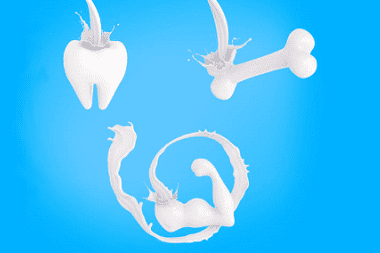Endocrinology >>>> Hypocalcemia
Hypocalcemia.

The state of the body in which the release of calcium ions from the bloodstream increases due to its deposition in tissues (including bone), excretion from the body with urine, accelerated binding of calcium ions in the blood serum, reduced calcium intake from outside is called hypocalcemia. A decrease in the concentration of total calcium below 2.0-2.5 mmol per liter indicates a state of hypocalcemia.

Considering that parathyroid hormone, vitamin D and its metabolites are considered the main regulators of calcium concentration in the bloodstream, the causes of hypocalcemia lie in disorders associated with the secretion of parathyroid hormone, the development of resistance to this hormone, vitamin D deficiency, as well as in the intake of certain medications contributing to these violations.
Causes of hypocalcemia with decreased secretion of parathyroid hormone (primary hypoparathyroidism):
- agenesis, destruction, genetic pathology or autoimmune damage to the parathyroid glands,
- due to defectiveness of the parathyroid hormone gene,
- as a result of hypomagnesemia,
- with mutation of calcium-sensitive receptors.
Causes of hypocalcemia with a normal level of parathyroid hormone secretion (secondary hypoparathyroidism):
- Vitamin D hypovitaminosis (with liver diseases, malabsorption, renal failure, vitamin deficiency from food, lack of sunlight),
- Vitamin D resistance (with a defect in vitamin D receptors, with renal tubular dysfunction),
- Resistance (insensitivity) to parathyroid hormone (pseudohypoparathyroidism),
- Tumors and osteoblastic metastases,
- Acutely flowing pancreatitis,
- Acute rhabdomyolysis (destruction of muscle tissue cells),
- Intoxication of the body.
Medicines that promote the development of hypocalcemia:
- Bone resorption inhibitors (calcitonin, biophosphonates),
- Medicines that interfere with vitamin D metabolism (anticonvulsants),
- Phosphates,
- Blood transfusion of blood containing sodium citrate.
Signs of hypocalcemia:
- may be asymptomatic when the concentration of total calcium in the blood is at the level of 2.0-2.2 mmol per liter,
- increased excitability of neuromuscular tissue,
- paresis of the limbs or circular muscle of the mouth,
- bone pain,
- convulsions,
- bronchospasm,
- dizziness,
- loss of consciousness is possible ,
- memory impairment,
- insomnia,
- neuroses,
- trophic disorders (development of cataracts, destruction of teeth, nails, fragility and impaired hair growth),
- Chvostek's symptom and Trousseau's symptom,
- tachycardia,
- heartache,
- arrhythmias,
- laryngospasm,
- dyspeptic disorders,
- vomiting.
Diagnosis of hypocalcemia is based on:
- measuring the level of calcium ions in blood serum,
- biochemical blood test for the concentration of bilirubin, creatinine, phosphate, magnesium, determination of the level of parathyroid hormone and vitamin D content, etc.,
- X-ray examination of the state of bone tissue.
Treatment for hypocalcemia includes:
- A diet enriched with calcium salts (up to 2000 mg);
- Frequent exposure to the sun (not sunbathing, but walking);
- Exclusion from the use of sunscreens (blocking ultraviolet light, which is necessary for the synthesis of vitamin D in the body);
- Therapeutic intake of drugs containing the trace element calcium and vitamin D (alfacalcidol, calcitriol, cholecalciferol, ergocalciferol, dihydrotachisterol), and in case of magnesium deficiency, magnesium sulfate;
- Therapy of diseases that maintain the state of hypocalcemia (for diseases of the kidneys and liver, I use only calcitriol or other active metabolites of vitamin D).
Hypocalcemia caused by hypoparathyroidism is treated according to therapy for hypoparathyroidism.
Acutely developing hypocalcemia (with a total calcium level below 1.9 mmol per liter) requires urgent measures:
- Slow intravenous administration of solutions of calcium gluconate, glucose, sodium chloride,
- with hypomagnesemia, magnesium sulfate is administered intravenously.

Read

Read



























